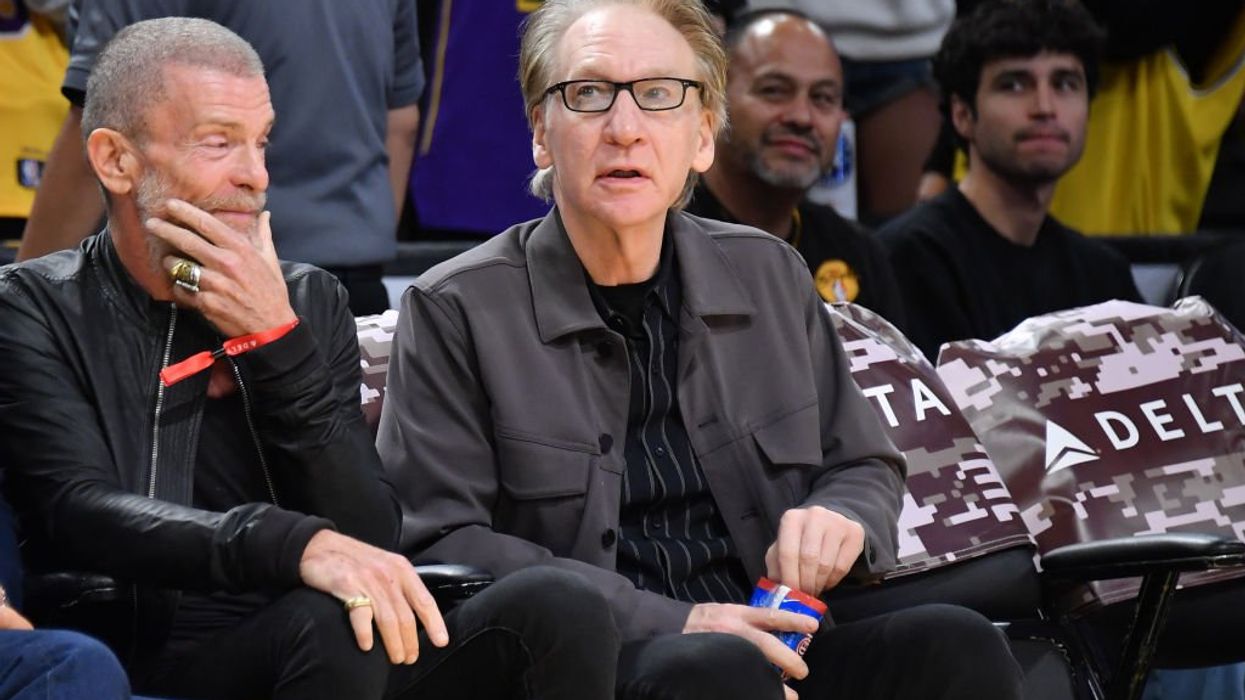Two Democrat governors who signed significant gun-control legislation last year defended the laws as effective in preventing crime.
 Connecticut Gov. Dannel P. Malloy (Image source: AP/Jessica Hill, File)
Connecticut Gov. Dannel P. Malloy (Image source: AP/Jessica Hill, File)
“We have the lowest crime we've had in 46 years, currently,” Connecticut Gov. Dan Malloy told TheBlaze. “So if you ask is there a connection between our gun policies, I'll just leave it up to people to draw their own conclusion.
"But we have a lower homicide rate than we've had. We have a lower crime rate overall," the Democrat said. "In 46 years that's a pretty good year.”
However, Connecticut's largest newspaper, The Hartford Courant, reported that there has been a lag in compliance with the requirement — passed by the Connecticut legislature and signed by Malloy in the wake of the Newtown school massacre in December 2012 — that gun owners register assault weapons.
The Courant reported that about 50,000 applications for assault weapons certificates were sent to the state. But the paper, citing the National Shooting Sports Foundation, said that figure could account for just 15 percent of riffles classified as assault weapons.
“No one has anything close to definitive figures, but the most conservative estimates place the number of unregistered assault weapons well above 50,000, and perhaps as high as 350,000,” the Courant said. “And that means as of Jan. 1, Connecticut has very likely created tens of thousands of newly minted criminals — perhaps 100,000 people, almost certainly at least 20,000 — who have broken no other laws. By owning unregistered guns defined as assault weapons, all of them are committing Class D felonies.”
Malloy dismissed the report.
“I don't think that that's true. I think that's a made up number,” Malloy said.
When asked made up by who, Malloy replied, “check the source,” possibly referring to National Shooting Sports Foundation
However, the Courant said the numbers were “according to estimates by people in the industry, including the Newtown-based National Shooting Sports Foundation.”
“It's going along very well. People have registered their guns,” Malloy told TheBlaze. “I'm confident that the program is working extremely well.”
Malloy, who was in Washington over the weekend for the National Governors Association Winter Meeting, added that “there's no reason to believe that people haven't registered their guns who have them."
“That number is based on looking at how many guns were sold in the state over a 30-year period of time and how many are registered. Well I've got news for you: Guns get disposed of. They get eliminated. They move to other states. I just don't believe that's an accurate number.”
 In a May 22, 2013, file photo Colorado Gov. John Hickenlooper speaks at a news conference at the Capitol in Denver. (Image source: AP/Ed Andrieski, File)
In a May 22, 2013, file photo Colorado Gov. John Hickenlooper speaks at a news conference at the Capitol in Denver. (Image source: AP/Ed Andrieski, File)
Another governor at the meeting was Colorado's John Hickenlooper, a Democrat whose state passed a universal background check bill for gun purchases in 2013. The public pushback led to the recall of two leading state Senate Democrats who pushed the law, in races that were heavily funded by national groups such as the NRA and Michael Bloomberg's Mayors Against Illegal Guns. Another Democratic state senator resigned to avoid recall.
Despite all the apparent backlash, Hickenlooper told TheBlaze he doesn't anticipate gun control being an issue in the 2014 elections.
“I think most people in Colorado are more focused on jobs, the economy, how we can reduce regulation and work with businesses to hire more people,” he said.
“I'm sure some people will try to bring it into the elections,” Hickenlooper added, saying "universal background checks was a big part of that."
However, he said he received "about a quarter, a third of my finance for my reelection from Republicans. Several of them are very significant Republican donors who like the fact that a business guy is in office and have been very supportive all along of my relatively brief political career. Every single one of them I've talked to supports universal background checks.”
Gun stores already conducted background checks. The Colorado law expanded those requirements to private sales, such as over the Internet or in newspaper classifieds.
Hickenlooper said it's “impossible to know” if increased background checks would have stopped mass shootings, such as the one that happened in the Aurora, Colo. movie theater in 2012.
“But increased background checks, almost everyone I know, Democrats, Republicans and independents, it polls at 85 percent. That's not fancy tricky language,” he said, adding that background checks can help ensure that those who want guns "don't have a violent felony in their background."
"Just do the check. Do you think you should have to get a drivers license to drive a car? Cars are legal. But we don't want people driving cars that might do something illegal.”
Hickenlooper was also skeptical as to whether the recall elections represented a sweeping view on guns in the state.
“One of the two people who lost their seats definitely didn't lose it over the gun bill, but over their entire relationship with the district,” he said. “Go back and see a search of newspaper articles — you don't see a lot about guns. You see people focused really on jobs and education.”
Hickenlooper said that gun background check laws in the state did prevent criminals from obtaining weapons even before being expanded to private sales.
“In 2012, half the gun purchases, who did we stop? Was it worth the time?” he asked rhetorically. “Thirty people convicted of a homicide tried to buy a gun — we stopped them; 133 people convicted of sexual assault; 620 burglars; 1,300 people convicted of felony assault; 420 people that had a judicial restraining order against seeing their old boss or ex-girlfriend. All these people tried to buy guns and we stopped them. So it works.”

 Connecticut Gov. Dannel P. Malloy (Image source: AP/Jessica Hill, File)
Connecticut Gov. Dannel P. Malloy (Image source: AP/Jessica Hill, File)
 In a May 22, 2013, file photo Colorado Gov. John Hickenlooper speaks at a news conference at the Capitol in Denver. (Image source: AP/Ed Andrieski, File)
In a May 22, 2013, file photo Colorado Gov. John Hickenlooper speaks at a news conference at the Capitol in Denver. (Image source: AP/Ed Andrieski, File)


